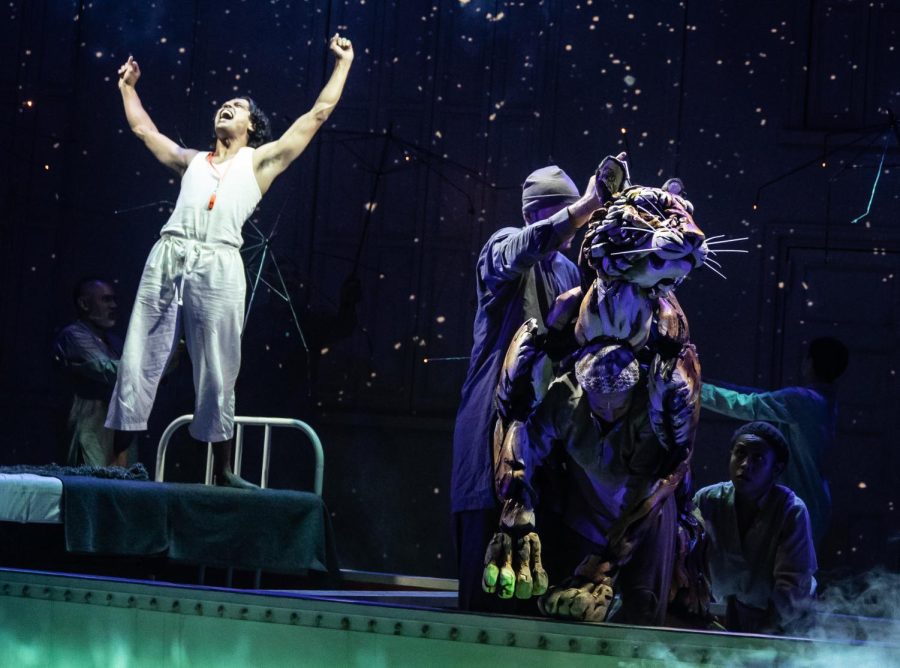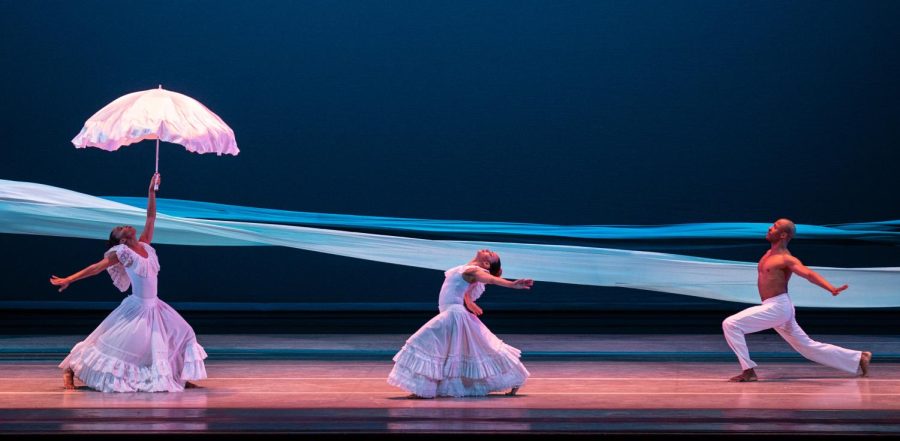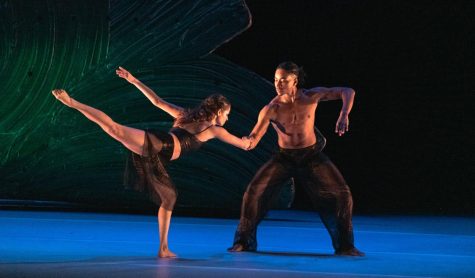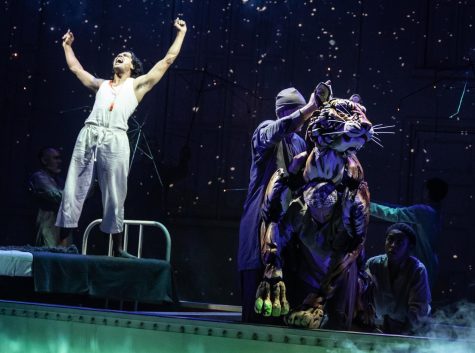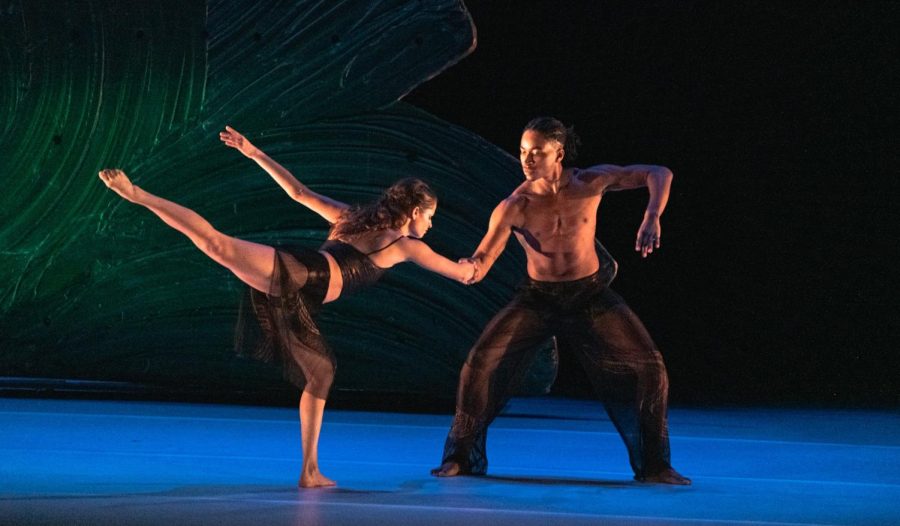‘Life of Pi’ transports audiences on reflective journey — along with a Bengal tiger
Award-winning play on stage at American Repertory Theater in Cambridge through Jan. 29 before moving to Broadway
Raider Times photo / Courtesy Matthew Murphy and Evan Zimmerman for MurphyMade
Adi Dixit (“Pi”), Rowan Magee, Celia Mei Rubin, and Nikki Calonge (“Richard Parker”) in “Life of Pi,” which will be performed at American Repertory Theater in Cambridge, Mass., through Jan. 29, 2023.
December 20, 2022
Faith-testing, principle-altering, and traumatizing is the journey of Pi Patel, the main character of “Life of Pi,” a play that has been brought to Boston and is bound for Broadway this spring. The show follows the teenage Pi who, after losing his family to a sinking ship, struggles to survive as he drifts across the Pacific Ocean alone in a lifeboat with a zebra, hyena, orangutan, and Bengal tiger.
“Life of Pi” is being performed through Jan. 29, 2023, at Harvard University’s American Repertory Theatre (a venue that has racked up 18 Tony Awards and pioneered theatrical sensations “Six” and “Waitress”) before hitting New York in March. It’s a polished production that combines acting, puppetry, and technology to absorb audiences in symbolism and issues around nature, beliefs, and mental health.
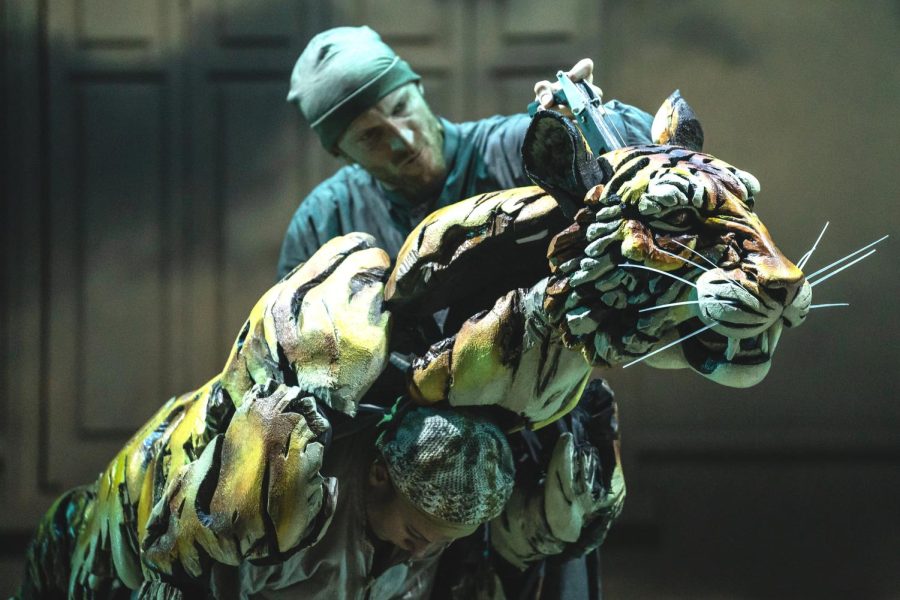
In a case of good timing, the A.R.T. has recently launched its Essential Question program, in which each show is paired with a thought-provoking question for audiences to consider, because, in the words of A.R.T. artistic director Diane Paulus, “We believe that art is inquiry.”
Pi’s journey is rooted in the question, “How does telling stories help us cope and survive?”
Adi Dixit (television’s “Young Sheldon”) stars as Pi Patel, whose family runs a zoo in late-1970s India before deciding to relocate to Winnipeg amid Indian political turmoil. Dixit does an admirable job at projecting Patel’s persistent youthfulness but also the vexations he endures around adapting to survival on a boat, which requires going against his morals.
The production is directed by Max Webster and adapted by Lolita Chakrabarti from Yann Martel’s Booker Prize-winning novel of the same name. It has also been running on London’s West End since 2021, where it won five Olivier Awards, including Best Play.
A unique element to the play is Pi’s visions in which he is guided by other characters. While one doesn’t get the insight of the mechanics of Pi’s brainwork as one would when reading the book, the play highlights the importance of support in times of stress.
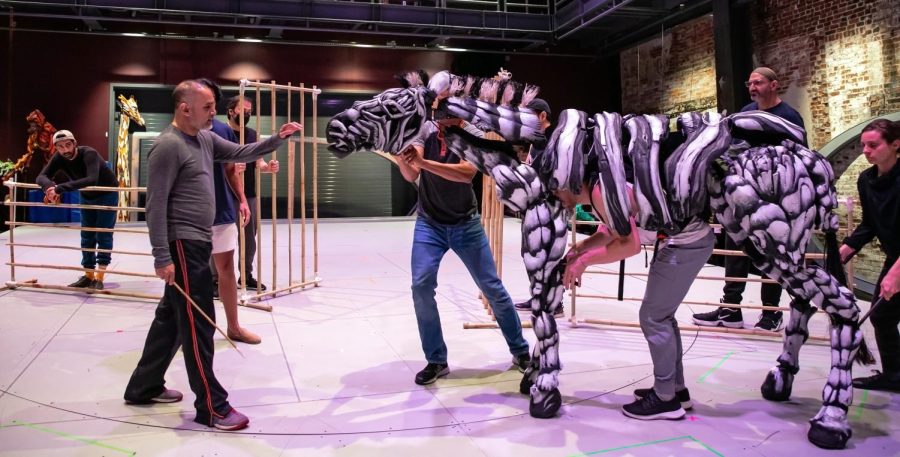
In this adaptation, Chakrabarti made sure to elevate the presence and influence of women. This inclusive and commendable effort includes ennobling the part of Pi’s lofty aunt (Salma Shaw), and creating the characters of Lulu Chen (Kirstin Louie), a Canadian official, and Pi’s sister Roni (Sonya Venugopal), who finely executes a relatable and playful sibling rivalry.
According to Chakrabrti, the character dynamics are bait to concoct the play. The show “is about the relationship between environment, animals, and people – that is the key.” As well as sibling rivalry, unconditional motherly love and father-son tension, Pi has intense relationships with the animals on the boat, all represented by breathtaking puppets. The puppets, which include a colossal giraffe, merry assortment of sea creatures, and Pi’s lifeboat companions, were designed by Nick Barnes, who co-directed the puppetry for the 2012 London Olympic Games, and Puppetry and Movement director Finn Caldwell, both from the Blind Summit puppetry company.
“The puppet is a signaling machine. The audience subliminally knows it’s there to communicate something.” says Caldwell, who also did the puppetry for the West End’s “War Horse.”
“I think there’s a muscle that the puppeteer can develop, which means that ‘If I move this way, that means something.’ You have to learn to tell stories.”
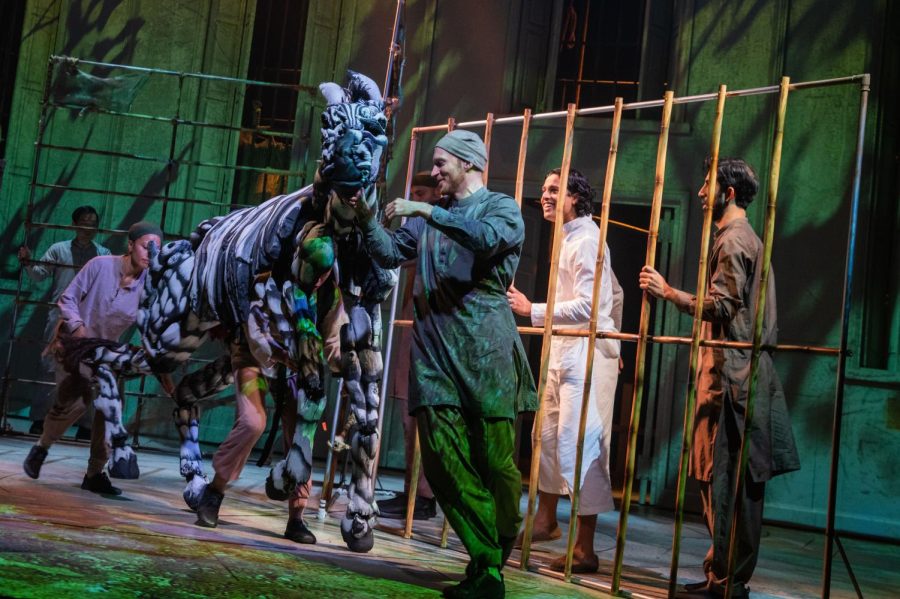
Here the puppeteers in “Life of Pi” can be seen by the audience, which is effective in relating humans to other animals, a paramount idea in the story. They also serve as beautiful visual aids with an imaginative streak, contributing to the overarching theme of storytelling. There is some violence among the animals, however, including the insides being ripped out of some puppets, which may not be appropriate for some audiences.
The play also embraces lighting and scenic design as transportive visual aids. Lighting designer Tim Lutkin, who has worked on West End shows from “Fiddler on the Roof” to “The Full Monty,” and Tony Award-winning scenic and costume designer Tim Hatley unite lighting and set design to immerse audiences in different atmospheres and moods. By changing the lighting and scenic components from scene to scene, one can easily forget they are still in the same Pacific Ocean setting. And while the story is mainly at sea, Hatley seizes the opportunity to celebrate Indian culture during the first act’s colorful marketplace scene, as well as gift audience members with the stunning and dynamic spectacle of the Patel family’s zoo.
“One of the main challenges in adapting this novel is the question of how we stay honorable and give answers in the play, but still allow the mystical element of religion and of life to live within it,” says Chakrabarti.
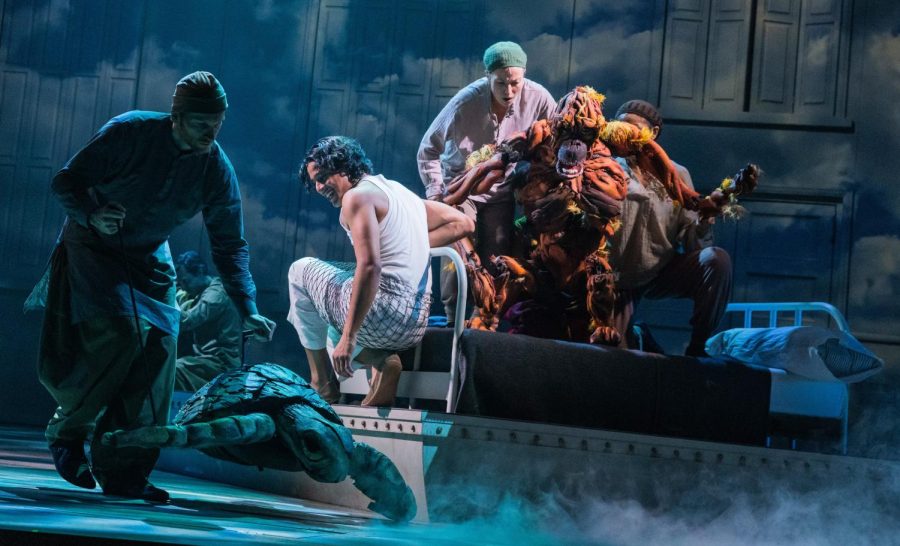
In India, Pi decides to be a Hindu, Muslim, and Christian out of his love for God. Even though religion can be a sensitive subject, the script is respectful of religious people, atheists, and agnostics, honoring and lightly contemplating their different approaches to situations.
The play sheds light on the timely issue of mental health and uses Pi’s development and coping strategies through his journey to demonstrate the effects of traumatic experiences on adolescents.
“I want us all to travel with Pi’s emotional journey — to feel his love, joy, and wonder and then to really feel his devastating loss,” says Chakrabarti. “This is a universal story, so I really think there’s something in it for everyone.”
(“Life of Pi” will be performed at the American Repertory Theater in Cambridge through Jan. 29. For tickets or more information, go to the A.R.T. home page HERE.)
–Dec. 20, 2022–
